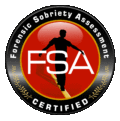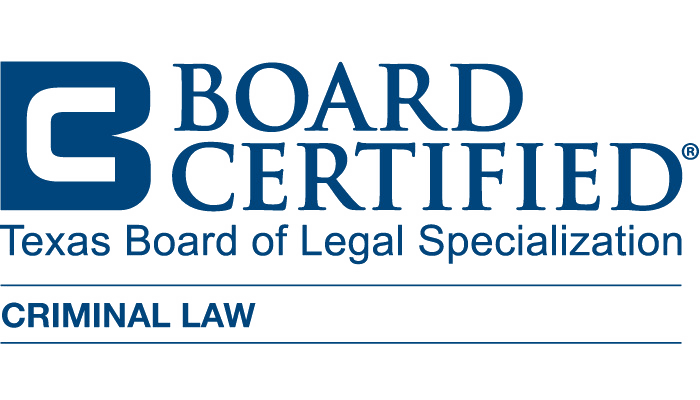







Skilled Lubbock Texas DWI Attorneys educated and skilled in Texas DWI Laws – DWI Law in Texas – Drunk driving defense attorneys defend cases such as DWI DUI arrest for drunk driving.
– DWI Driving While Intoxicated in The State Of Texas
– DUI Driving Under The Influence in The State Of Texas
With experienced Lubbock Texas DWI defense attorneys on your side who know the Texas drunk driving laws and have been successful in getting results throughout the West Texas area, you’ll have a greater chance of a more favorable outcome. Experience in litigation and trial defense work, research and case preparation, and ongoing DWI training, helps the attorneys at the Law Office of Stephen L. Hamilton prepare the best case for you.
Mr. Hamilton, understands and realizes that you’re probably confused, angry or fearful about your drunk driving incident. Being arrested for drunk driving, taken to jail, and fingerprinted and photographed can be very dehumanizing. As an experienced DWI defense attorneys we sincerely sympathize with you.

Evaluating A Texas Drunk Driving DWI Case and the Deciding Factors. In most Texas DWI cases, there are 3 pieces of evidence that are open to interpretation of the Texas DWI law. Evaluating A Texas Drunk Driving DWI Case and the Deciding Factors.
- The police report is only the officer’s interpretation.
- Were you properly read your Miranda warnings?
- Did the police officer stop you for a valid reason?
- Were any statements made by you coerced, taken out of context, or misinterpreted?
The Intoxilyzer 5000 assumes that everyone has the same blood breath partition ratio, hematocrit ratio and assumes that all samples are at an air temperature of 93.2 F. Texas DWI Laws do not utilize any methods which would allow for a retest of samples given. The computer software is proprietary and is not available to scientific peer review. There are many things which have been shown to affect a breath test score. Texas does not allow for non-law enforcement or government personnel to become certified as breath test technical operators. Much of the Texas breath program remains limited to outsiders despite a generally assumed belief that these machines have undergone and passed wide general scientific review.
Special Note
The law firm owns its own Intoxilyzer 5000 and Portable Breath Test Machines. Read more on roadside field sobriety testing.
Stephen Hamilton has been invited to lecture to attorneys throughout the State of Texas on the Intoxilyzer and breath test cases.
Stephen Hamilton has completed training in blood alcohol analysis and forensic blood analysis. Because of this training I know the errors and fallacies of a blood test that the prosecution will introduce.
Clients come from across Texas to retain their services. Both defense attorneys focus on criminal cases with the emphasis of their practice devoted to DWI defense cases. They focus on cases in the West Texas and in the Texas panhandle.
Field Sobriety Tests:
Police make arrests on the basis of probable cause. This is not the same thing as “beyond reasonable doubt.” It is not a police officer’s job to determine if someone is guilty. Many police offers choose to arrest on the basis of caution.
There is much technical training for a police officer in the field of Texas DWI Law. There is no law in Texas which states they must keep up their training on a yearly or any other type of basis with respect to standardized field sobriety training.
Many police officers do not make any form of notes on the side of the road with respect to numerous details. Most police officers do not include mitigating or exculpatory information in their reports, mainly negative observations.
If there was a video taping of the event, does it accurately depict your true state of sobriety at the time, or was it unfairly effected by perhaps traffic, poor lighting, noise, or lack of sound.
It is important to note that the law provides for intoxication by the introduction of any intoxicating substance into the body. This is designed to make our roadways safe from dangerous drivers. Typically, proof at trial is restricted to alcohol unless some statements or other indications suggest that the driver has become impaired by some other substance. It is important to note that being on prescription drugs is not a defense to a DWI criminal prosecution. If the label suggests that ingestion will impair ones ability to operate a motor vehicle or machinery, taking such medicine and driving may subject you to DWI arrest and conviction. At trial, the State therefore may prove intoxication in three (3) different ways:
– not having the normal use of physical faculties OR
– not having the normal use of mental faculties OR
– having an alcohol concentration of 0.08 or more.
The jury does not have to be unanimous on the manner and means of intoxication, only that the person was intoxicated. It is also important to note that intoxication must occur and be proven to occur while driving.
Many other States provide for prosecution of a “lesser included” offense other than Texas DWI (i.e. reckless driving, impaired driving, driving under the influence, etc.). Texas however has no lesser included offense of DWI. Some counties offer plea bargain agreements to other charges than Texas DWI, but they are the exception and not the rule
Fine: A fine not to exceed $2,000.00.
Jail: Confinement in the County Jail for a term of not less than 72 hours nor more than six (6) months.
Open Container: If there was an open container of alcohol in your car when arrested, the minimum term of confinement is six (6) days in the county jail.
Community Service: Texas laws mandates that a judge order not less than 24 hours nor more than 100 hours.
Absent unusual facts, most persons convicted of a first offense DWI are granted community supervision (“probation”) of any confinement ordered. The general length of DWI probation is from 1-2 years. There are also conditions of community supervision ordered that are fairly standard in most courts. Typical conditions imposed are:
Drug/Alcohol Evaluation: A person convicted of a Texas DWI will be required to submit to evaluation for probability of committing DWI in the future and/or to disclose a potential problem with alcohol or drug abuse. If a problem is detected, additional terms and conditions of probation are ordered to be administered through the Community Supervision Department.
Attend and complete an approved Texas DWI Education class within 180 days from the date of conviction (Satisfying this requirement will avoid the one (1) year drivers license suspension, unless if you were a minor (under 21) at the time of the offense.)
Attend and complete a Victim Impact Panel. This presents the victims of drunk drivers to address persons convicted of DWI and warn of the dangers and perils of driving while intoxicated.
Work faithfully at suitable employment, commit no other crimes, remain at the same residence and employment unless notification is given to the community supervision officer, report monthly to the supervision office, pay all fines and costs in a timely manner.
Additional Conditions of Probation that may be Ordered:
If your case presents unusual facts (accident, alcohol problem, prior alcohol contacts, bad driving record etc.), additional conditions may be ordered. Most conditions are designed to address a problem that appears from the facts or alcohol/drug evaluation that is performed on the subject after conviction. Again, a specific order is given after each conviction. The following list is only a general discussion of conditions that have been imposed in some DWI cases in my experience and may not apply to you.
Alcohol Treatment: Attendance at AA or other counseling programs offered through the probation department. In extreme cases outpatient programs may be ordered. This condition is recommended after an unfavorable drug/alcohol evaluation.
Consume no alcohol: Many courts require that a person not consume any alcohol during probation. This provision may be monitored by periodic and random urinalysis at the probation office. Some courts will not even allow a probationer to enter a bar, tavern or lounge where alcohol is sold and consumed.
Confinement: Again, in some extreme circumstances, the Court may order that a DWI drunk driving offender serve confinement in the county jail as a condition of being granted probation.
Restitution: If there was an accident followed by a DWI arrest, and if your insurance company has not paid damages to the other party, restitution of any unpaid amounts will be ordered by the Court as a condition of probation.
Enhanced Penalties: (Prior alcohol or drug related criminal history) Under Texas law, if it is shown that a person has been previously convicted of DWI, the punishment and penalties after conviction are increased or enhanced. The prior DWI conviction must have occurred within ten (10) years of the present arrest for DWI. Additionally, if a person has any prior DWI conviction within the previous ten year period (measured from dates of arrest), the State is then allowed to use any prior DWI conviction since obtaining a drivers license to enhance the accusation to a DWI, third offense. NOTE: Texas can use prior convictions that have occurred in other states for enhancement of punishment.
Special Condition for Jail Release on Bond: It is important to note that if arrested and accused of a Texas DWI Second or greater offense, Texas law now requires the Court to Order as a CONDITION OF RELEASE FROM JAIL ON BOND, that the person install and maintain a deep lung air device on the car that the person intends to drive and operate while charges are pending. The device requires a breath sample before it will allow you to start your car. They also require periodic breaths while driving to monitor and insure sobriety. New technology has made these devices “user sensitive” so that someone else cannot blow into the device for the driver. Although this provision seems to run afoul of the presumption of innocence, Texas Courts have consistently held that such condition is necessary to protect a legitimate governmental interest in making public roadways safe for the motoring public.
Fine: A fine not to exceed $4,000.00.
Jail: Confinement in the County Jail for a term of
not less than 72 hours nor more than one (1) year.
Community Service: Texas law mandates that a judge order not less than 80 hours nor more than 200 hours.
Deep lung air device: Typically deep lung devices are required for all DWI second offenders during probation.
Suspension of license: A person convicted of DWI, Second may have their driving privilege suspended for not less than 180 days or more than two (2) years.
Fine: A fine not to exceed $10,000.00.
Jail: Confinement in the Texas Department of Criminal Justice, Institutional Division (Penitentiary) for a term of not less than 2 years nor more than ten (10) years.
Deep lung air device: Deep lung air devices are generally ordered on all persons convicted of three or more DWI’s both as conditions of bond and as conditions of any occupational or provisional licenses that may be awarded after conviction.
Community Service: Texas law mandates that a judge order not less than 160 hours nor more than 600 hours.
Suspension of license: A person convicted of DWI, Second may have their driving privilege suspended for not less than 180 days or more than two (2) years.
Other: A third conviction for DWI indicates a significant problem with alcohol to the Court or jury assessing punishment. Some type of rehabilitative treatment is therefore mandated in punishment if confinement in the penitentiary is to be avoided. In some cases an in-patient, incarceration program (Substance Abuse Felony Probation SAFP) is ordered. This program requires confinement in a State Facility for alcohol rehabilitation. After successful completion of the SAFP program, the person is then released and placed on probation for a term not to exceed ten (10) years.
Another popular condition for habitual DWI offenders is a prescription for a drug named “Antabuse”. This drug will make a person violently ill if any alcohol is consumed. The alcohol can be contained in mouthwash or marinated food and will still have the same effect on the user. If a person has any type of liver problems, this drug can cause liver failure and death.
Texas law does not provide for any increased punishment after DWI, third offense. If a person presents a DWI, fourth offense or beyond, the typical punishment is confinement in the penitentiary from two (2) to ten (10) years without probation being granted. In some cases SAFP may be granted upon proper request and showing that it is appropriate.
“A person commits an offense if the person, by accident or mistake, while operating a …. motor vehicle in a public place while intoxicated, by reason of that intoxication causes serious bodily injury to another” {Texas Penal Code §49.07}.
” ‘Serious Bodily Injury’ means injury that creates a substantial risk of death or protracted loss or impairment of the function of any bodily member or organ”.
Fine: A fine not to exceed $10,000.00.
Jail: Confinement in the Texas Department of Criminal Justice, Institutional Division (Penitentiary) for a term of not less than 2 year nor more than ten (10) years.
Community Service: Texas law mandates that a judge order not less than 160 hours nor more than 600 hours.
“A person commits an offense if the person:
1)…operates a motor vehicle in a public place, and…
2)…is intoxicated and by reason of that intoxication causes the death of another by accident or mistake.”
Fine: A fine not to exceed $10,000.00.
Jail: Confinement in the Texas Department of Criminal Justice, Institutional Division (Penitentiary) for a term of not less than 2 year nor more than twenty (20) years.
Community Service: Texas law mandates that a judge order not less than 240 hours nor more than 800 hours.
WARNING !! Your license may be at risk of suspension. The license suspension is AUTOMATIC… UNLESS you request a hearing on the issue, in writing, WITHIN FIFTEEN (15) DAYS after receiving notice of suspension from the arresting agency on a Department of Public Safety approved form (generally received on the day of arrest). If a hearing has not been timely requested in the state of Texas, the suspension will automatically begin on the fortieth (40th) day after notice was received. If a hearing is requested, no action will be taken regarding suspension until after the hearing and all appeals have occurred. (Call our office in Lubbock immediately for assistance if you think your license is at risk- 806-794-0DWI) Board Certified In Criminal Law in the State Of Texas.
The government with all of its resources can frequently make your life miserable; regardless of whether you have actually committed the crime. Real life criminal law is very serious. Cases are not resolved in one hour, and the solutions are normally not simple. Hiring a criminal defense trial lawyer can be the most important decision you make.
You don’t need to face it all alone. Please call and schedule an appointment at your earliest convenience, as experienced DWI criminal defense attorneys located in Lubbock, Texas, we offer a free initial consultation where you and I can sit down and discuss the criminal charges against you and what options are available to you. To assist you financially in paying any attorney fees, I offer flat rate fees and flexible payment plans that will allow you to hire us as your DWI criminal defense lawyer so that I can start immediately to protect your rights. Call us today at (806) 794-0394 for a free consultation and see how we can help with your case.

